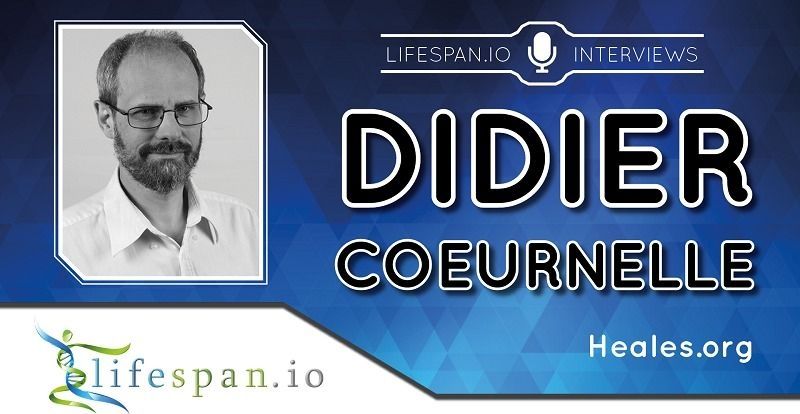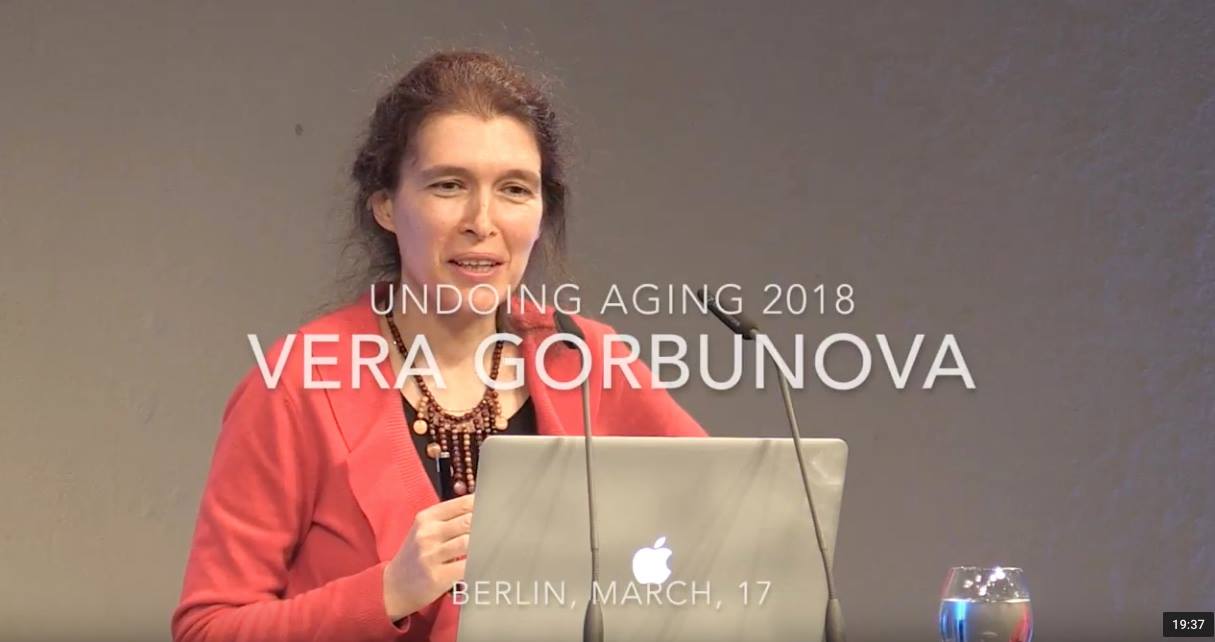
Category: life extension – Page 582

Within 5 years, the world could widely accept that we are within striking distance of a post aging world
George Church, Age-X, HIV, Aubrey, a lil bit of everything here.
Within 5 years, the world could widely accept that we are within striking distance of a post-aging world. This could be with the achievement of mice that would normally die at the age of three getting life extension at the age of two and living beyond 5 years. It might be after that with the similar treatments to reverse aging in dogs. It could be with the first age reversal treatments in humans that make people look significantly younger but also restore muscle and other body functions.
Investors would then accelerate any funding needed to complete several very promising anti-aging treatments which are currently being worked upon.

Two Industries in One Field
Now that we are starting to see the arrival of actual therapies aimed at targeting the processes of aging directly in order to prevent age-related diseases, it has become easier to separate two very distinct groups.
The first group consists of the snake oil salesmen peddling unproven supplements and therapies to whoever is foolish enough to buy and take things on faith without using the scientific method. The hucksters have long been a plague on our field, preying on the gullible and tainting legitimate science with their charlatanry and nonsense. One example is the “biotech company” that makes bold claims yet never delivers on those claims in practice, offering data based on poorly designed experiments and tiny cohorts that are statistically irrelevant; another example is the supplement peddler selling expensive supplement blends with flashy names, which, on inspection, turn out to be commonly available herbs and minerals mixed and sold at a high markup. These sorts of people have plagued our community and given the field a reputation of snake oil.
The second group are the credible scientists, researchers, and companies who have been working on therapies for years and sometimes more than a decade. Many of these therapies are following the damage repair approach advocated by Dr. Aubrey de Grey of the SENS Research Foundation over a decade ago. The basic idea is to take an engineering approach to the damage that aging does to the body and to periodically repair that damage in order to keep its level below that which causes pathology. These therapies are now starting to arrive, with some already in human trials right now, and this marks a milestone in our field: the credible science has finally outstripped the snake oil, and the focus can move from pseudoscience to real, evidence-based science.

State-of-the-art solar panel recycling plant
The German engineering company Geltz Umwelt-Technologie has successfully developed an advanced recycling plant for obsolete or ageing solar panels.
As sales of solar power increase, there is a looming problem that is quite often overlooked: disposing waste from outdated or destroyed solar panels. A surge in solar panel disposal is expected to take place in the early 2030s, given the design life of solar energy systems installed around the millennium.
To address this problem before this big disposal wave, the EU has funded the ELSi project. With strong competencies in plant manufacturing and wastewater treatment including recycling, the Geltz Umwelt-Technologie firm has built a test and treatment facility at a large disposal firm to retrieve reusable materials from solar modules.

An Interview With Didier Coeurnelle
An interview with Didier Coeurnelle from the Healthy Life Extension Society.
As you might remember, we have recently posted about the Longevity Film Competition, an initiative by HEALES, ILA, and the SENS Research Foundation that encourages supporters of healthy life extension to produce a short film to popularize the subject.
Didier Coeurnelle is a jurist and the co-chair of HEALES, the Healthy Life Extension Society promoting life extension in Europe, as well as a long-standing member of social and environmental movements.
We got in touch with Didier, who serves as co-director of the competition, to ask him about the initiative and to share his thoughts on advocacy in general.

New video from Undoing Aging 2018: Vera Gorbunova, University of Rochester: Mechanisms of longevity in long-lived mammals
https://www.undoing-aging.org/videos/vera-gorbunova-presenti…aging-2018
Btw: the facebook event page for Undoing Aging 2019 is already up fb.com/events/2044104465916196/

Our Families Succumb
Everyone can find plenty of examples from his or her own life of what aging is doing to us all.
A few days ago, I wrote an article while on a plane. I’m an expat, and I was flying back to my home country. I’m now in my hometown, where I lived until I was 18. I come back here only seldom, and the last time I visited was four years ago.
For the vast majority of the time I lived at my parents’ house, I was a child. My most vivid memories of the place are from my childhood, when everything looked so much larger. So, even though I did live here as a grown-up as well, every time I come back here after years of absence, every room in the house looks far less spacious. Things have changed a bit since I left. Furniture has changed place and function; ornaments and knick-knacks have been moved, added, or removed; predictably, even the town has changed somewhat over the years.
What has changed the most, though, are the people.

3D printed biomaterials for bone tissue engineering
When skeletal defects are unable to heal on their own, bone tissue engineering (BTE), a developing field in orthopedics can combine materials science, tissue engineering and regenerative medicine to facilitate bone repair. Materials scientists aim to engineer an ideal biomaterial that can mimic natural bone with cost-effective manufacturing techniques to provide a framework that offers support and biodegrades as new bone forms. Since applications in BTE to restore large bone defects are yet to cross over from the laboratory bench to clinical practice, the field is active with burgeoning research efforts and pioneering technology.
Cost-effective three-dimensional (3D) printing (additive manufacturing) combines economical techniques to create scaffolds with bioinks. Bioengineers at the Pennsylvania State University recently developed a composite ink made of three materials to 3D print porous, bone-like constructs. The core materials, polycaprolactone (PCL) and poly (D, L-lactic-co-glycolide) acid (PLGA), are two of the most commonly used synthetic, biocompatible biomaterials in BTE. Now published in the Journal of Materials Research, the materials showed biologically favorable interactions in the laboratory, followed by positive outcomes of bone regeneration in an animal model in vivo.
Since bone is a complex structure, Moncal et al. developed a bioink made of biocompatible PCL, PLGA and hydroxyapatite (HAps) particles, combining the properties of bone-like mechanical strength, biodegradation and guided reparative growth (osteoconduction) for assisted natural bone repair. They then engineered a new custom-designed mechanical extrusion system, which was mounted on the Multi-Arm Bioprinter (MABP), previously developed by the same group, to manufacture the 3D constructs.

Scientists Have Successfully Reversed The Aging Of Human Cells In The Lab
Aging is a battle that humans have known they can’t win since the beginning of history. We can hate it or (eventually) accept it but ultimately we can’t avoid growing old. However, over the years scientists have been trying to pinpoint the roots of this biological process and work out if there is any way to stop or reverse it. There have been some minor successes along the way and a new study adds to these.
The researchers were able to reverse the aging process of some old human cells by delivering a specific molecule to their mitochondria, the structures within cells where energy is produced. This approach stops the cells from becoming senescent, a point at which they can no longer duplicate. Some researchers believe that the accumulation of these cells in organs is key to the aging process.
“We still don’t fully understand why cells become senescent as we age, but damage to DNA, exposure to inflammation and damage to the protective molecules at the end of the chromosomes – the telomeres – have all been suggested,” the authors wrote in a post on The Conversation. “More recently, people have suggested that one driver of senescence may be loss of our ability to turn genes on and off at the right time and in the right place.”

Is Life Extension Altruistic?
Recently, we’ve published an article explaining why life extension is not a selfish endeavor. As a matter of fact, life extension is a rather altruistic endeavor, though this depends on your interpretation of the definition. Let’s dig deeper.
What is altruism?
According to the Oxford English Dictionary, altruism is disinterested and selfless concern for the well-being of others. Thus, one is altruistic when his or her actions are done for the benefit of others, without placing any importance on his or her own benefit.